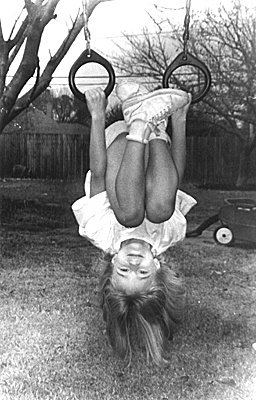All Nonfiction
- Bullying
- Books
- Academic
- Author Interviews
- Celebrity interviews
- College Articles
- College Essays
- Educator of the Year
- Heroes
- Interviews
- Memoir
- Personal Experience
- Sports
- Travel & Culture
All Opinions
- Bullying
- Current Events / Politics
- Discrimination
- Drugs / Alcohol / Smoking
- Entertainment / Celebrities
- Environment
- Love / Relationships
- Movies / Music / TV
- Pop Culture / Trends
- School / College
- Social Issues / Civics
- Spirituality / Religion
- Sports / Hobbies
All Hot Topics
- Bullying
- Community Service
- Environment
- Health
- Letters to the Editor
- Pride & Prejudice
- What Matters
- Back
Summer Guide
- Program Links
- Program Reviews
- Back
College Guide
- College Links
- College Reviews
- College Essays
- College Articles
- Back
The Controversy of Equality
Way back in 1776, our founding fathers signed the constitution, establishing a free country where “all men are created equal.” But now we ask ourselves: what about women? At that time, women and girls were expected to be at home, doing chores and raising the children. That idea was forgotten when the Industrial Revolution peaked in the United States and women joined the workforce. Yet, women faced discrimination. Because of this working girls banded together, striking and protesting for their rights and better wages. Still, women faced discrimination. Finally, a push towards modernization occurred when the 19th Amendment was drafted and women could finally vote. Nonetheless, women faced discrimination. This is called sexism and has become somewhat as a tradition in other countries. In the United States the wage gap is an obvious example of the issues women continue to face. The gender wage gap is a controversial topic that needs to be addressed because females have been treated as inferior for centuries and deserve to be treated as equals.
Over the past several decades, the treatment of women has improved, but not in the workplace,. The wage gap affects women more than one would think and one significant problem almost every college student faces is student loan debt. The American Association of University Women(AAUW) reported that female graduates in 2008 paid 33% of their debt by 2012, and male graduates paid 44% in five years. It is worse for black and hispanic women who paid 9% and only 3% of their debt. The “Pink Tax” is even more unfair when you consider the wage gap. Personal care products, like toothpaste, deodorant, shampoo, and soap marketed to women are often priced higher making it more expensive to be a clean woman than a clean man. Yet, those are not the only ways wage gap affects us all.
There are career fields that have been gender segregated and the AAUW states that the problem is still a common occurrence. 40% of women in 2014 were working in traditionally ‘female’ jobs, such as teaching, nursing, and social work; at the same time, 5% of men in these jobs were still paid higher. Female-dominated occupations pay less than those of men-dominated jobs. A different study found that there are few occupations where women actually earned more than men: counselors, teachers assistants, food preparation and serving workers, and sewing machine operators. That’s it! Women lose more than $10,000 a year to their male counterparts, but it has gotten better. In 2015 the gap was 79.6 cents, and in 2016 it is 82 cents. That is only a 2.4 cent difference.
The gender wage gap most negatively affects older citizens in the nation making women fear for their future.. It is true that both genders are behind on expected healthcare costs, but women are trailing considerably from men. A 45-year-old man who will retire at 65 will fall $212,256 short, while women will be behind by $268,204. The gap better assists men for an easier retirement plan. The gap also is wider for older people. They faced bigger gaps when they started their careers, which can hurt their long-term earnings. It would take 10 years for a woman to earn the same amount as a man before retirement and it is even longer for women of color and ethnicity.
Progress has slowed over the last decade mostly because Congress has not engaged on it. It is a lifelong issue.
The Institute for Women’s Policy predicted in early 2017 that the United States will not be gender equal until at least the 23rd century. Note that it is only the 21st. Many people this year have seen the movie Wonder Woman, a box office smash hit. The lead actress, Gal Gadot was paid $300,000 for her role, while Henry Cavill, most known for his role as Superman, was paid $14 million. Not to mention, she has 2 kids, one of which she was pregnant with during filming, and he has none. It is difficult to determine one specific way to fix this brewing problem. The Huffington Post envisions the solution to the wage gap in 10 steps:raise the federal minimum wage, women negotiating for their wages, do away with imposter syndrome, women discuss pay with co-workers, pass wage equality legislation(the Equal Rights Amendment). Also, speak out publicly, encourage all genders to help, pass paid family leave policies, ensure access to affordable childcare, and, of course, smash the patriarchy. People must stop believing that it is a myth, that the gender wage gap doesn’t exist. It needs to be accepted world wide because the gender wage gap is an impending obstacle that touches millions. Only when it is overcome will we all truly enjoy “life, liberty, and the pursuit of happiness.”

Similar Articles
JOIN THE DISCUSSION
This article has 0 comments.
